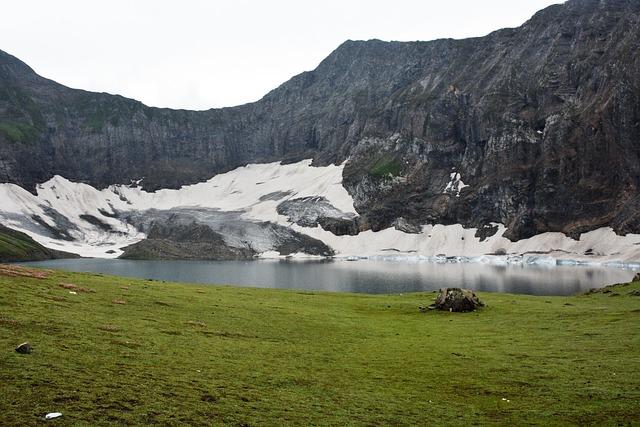Lack of interest and intransigence stop India and Pakistan from solving the Kashmir conflict
Posted By Christopher Snedden on June 26, 2019 @ 14:30

In May, The Strategist published an article titled ‘What’s stopping India and Pakistan from solving the Kashmir conflict? [1]’ That headline led me to believe that the authors would offer reasons why both nations have been unable to resolve their longstanding dispute over Jammu and Kashmir (J&K). Disappointingly, they offered no such suggestions.
There are many reasons for Indian–Pakistani indifference to, or even intransigence over, the ‘Kashmir conflict’. For a start, there’s no need, or compelling reason, for either nation to resolve this issue. Economically, both have developed without resolving it. Neither has ever confronted significant domestic pressure to resolve it. The UN Security Council, to which India took the dispute in 1948, has chosen to forget about it. Since 1965, the ‘India–Pakistan question’ (that is, ‘the Kashmir conflict’) hasn’t appeared as an agenda item for Security Council meetings. The only UN involvement in J&K now is its small Military Observer Group for India and Pakistan [2], which monitors the Line of Control.
In 1971, a big change came after India and Pakistan fought their third war, the result of which was the creation of Bangladesh. The postwar Simla Agreement of 1972 essentially stated that all India–Pakistan issues thereafter would be dealt with bilaterally. There would be no third-party involvement. This empowered India and made it intransigent—except when it wanted external assistance. For example, India was happy that US President Bill Clinton pressured Pakistan during the 1999 Kargil ‘war’. Most recently, India has sought International Court of Justice intervention to prevent Pakistan from executing an Indian ‘spy’, Kulbhushan Jadhav [3]. Meanwhile, with equal intransigence, Pakistan continues to call for a UN-supervised plebiscite [4] to enable the people of J&K to determine whether ‘their’ state, in its entirety, would join India or Pakistan. Problematically, India has been uninterested in this poll since the mid-1950s.
Concurrently, the Kashmir dispute changed from being about which nation would govern J&K in its entirety to how, and where, India and Pakistan would divide the former princely state. The area of contestation was, and remains, the Kashmir Valley—the real Kashmir from which the ‘Kashmir conflict’ takes its name. India holds this strongly Muslim-majority area, where an anti-India insurgency, supported by Pakistan, has continued since 1988. India wants Kashmir simply in order to deny it to Pakistan. Pakistan wants Kashmir, if only because the ‘k’ in the acronym ‘Pakistan’ stands for ‘Kashmir’. Arguably, most Kashmiris don’t want either nation. They want azadi, a loose term meaning independence, autonomy or freedom.
My other issue with the article is the authors’ statement that ‘Even as the maharaja dithered about joining India or Pakistan or remaining independent, the Pakistan Army dispatched a band of guerrilla raiders, who infiltrated Kashmir in October 1947.’ ‘Raiders’ from Pakistan’s neighbouring North-West Frontier Province certainly invaded J&K on 22 October 1947. Significantly, their action finally compelled the dithering Maharaja of J&K, Hari Singh, to accede to India on 26 October 1947.
However, Hari Singh’s subjects had taken three significant actions before his accession [5]. In southwestern J&K, pro-Pakistan Muslim elements mounted an anti-Maharaja uprising soon after partition on 15 August 1947. Fairly quickly, the ruler lost control of J&K’s Poonch and Mirpur areas. Concurrently, in Jammu Province, there was serious inter-religious violence, including a possible massacre of Muslims that partially inspired the ‘raiders’ to invade J&K. However, they invaded Kashmir Province, where Hari Singh was then staying, and not Jammu Province, where Muslims (and Hindus and Sikhs) were being slaughtered. It was a naked attempt to capture the ruler and obtain his accession to Pakistan before snows made it difficult for India to physically support pro-India Kashmiri elements in the Kashmir Valley. On 24 October, the Poonch and Mirpur rebels declared the creation of the provisional government of Azad (‘Free’) Kashmir in their ‘liberated’ areas. Supposedly, it was the ‘true’ government for J&K. India has never set foot in this area, or in Gilgit–Baltistan, even though it claims that all of J&K is ‘an integral part of India’.
Many Indians and Pakistanis don’t know about these three pre-accession events—or they choose to ignore them. This negates the fact that the people of J&K instigated the Kashmir dispute, and not external ‘guerrilla raiders from Pakistan’, as India has long claimed and to which claim Pakistan has surprisingly acquiesced. Consequently, both nations have effectively disempowered the people of J&K in all attempts to resolve the Kashmir conflict. This means that the party with significant interest and will to resolve this issue—the people of J&K—has been sidelined.
Since 1947, both India and Pakistan have shown that they are either unable or unwilling to resolve the conflict. Given their lack of interest, I agree with the authors’ final statement that ‘the issue isn’t going to be resolved anytime soon’.
Article printed from The Strategist: https://aspistrategist.ru
URL to article: /lack-of-interest-and-intransigence-stop-india-and-pakistan-from-solving-the-kashmir-conflict/
URLs in this post:
[1] What’s stopping India and Pakistan from solving the Kashmir conflict?: /whats-stopping-india-and-pakistan-from-solving-the-kashmir-conflict/
[2] Military Observer Group for India and Pakistan: https://unmogip.unmissions.org/background
[3] Kulbhushan Jadhav: https://www.icj-cij.org/en/case/168
[4] UN-supervised plebiscite: https://www.dawn.com/news/1484223
[5] three significant actions before his accession: https://www.india-seminar.com/2013/643/643_christopher_snedden.htm
Click here to print.